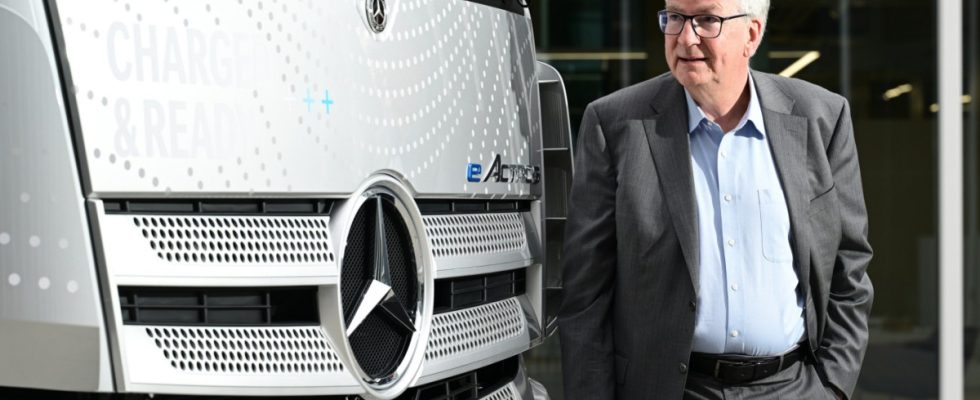Two heavyweights in the commercial vehicle industry are merging under the pressure to use climate-friendly drives: The world’s largest truck manufacturer Daimler Truck and the Japanese Toyota group announced on Tuesday that they would merge their subsidiaries Mitsubishi Fuso and Hino Motors. A declaration of intent has been signed for this purpose. A merger of equals is planned, the details of which are currently being negotiated. A significant portion of the combined company’s shares, which are to be listed on the Tokyo Stock Exchange, are said to be held by third parties.
Daimler Truck and Toyota have also agreed to consider potential risks related to the Hino emissions manipulation scandal when evaluating the Toyota subsidiary. “We are taking a giant step today to change the future of commercial vehicles,” emphasized Koji Sato, who controls the world’s largest carmaker Toyota. At a joint press conference, Daimler truck boss Martin Daum added that the transformation of the industry means that companies have to develop several drive technologies at the same time – battery-powered trucks and vans, hydrogen-based fuel cells and possibly also hydrogen-powered internal combustion engines. “There’s only one way to make this parallel technology development work: economies of scale,” said Daum. This is because the costs per vehicle fall as a result of large quantities. The prices for newly developed vehicles should remain affordable for freight forwarders and fleet operators, despite expensive technology. Experts also see the merger against the background of efforts to become more independent from China. However, this was only mentioned in passing at the press conference.
“With this courageous step, we will more than double our resources,” explained Karl Deppen, head of Mitsubishi Fuso Truck & Bus. That means greater access to technological knowledge and a larger network of suppliers and infrastructure. Hino and Fuso benefit primarily from joint development, procurement and production. The global sales organizations of the groups remain separate. The partners stated that they want to promote CO2 neutrality. To this end, investments should be made in the development of hydrogen drives and technologies for networking vehicles and automated driving (CASE). The planned company, whose name has not yet been decided, will be a major player in Southeast Asia and an important partner in the Daimler truck family, explained Daum.
Despite bottlenecks in supplier parts, Daimler Truck increased deliveries last year by 14.2 percent to around 520,000 vehicles. Hino and Fuso together weigh almost 300,000 vehicles, Fuso alone had 137,600 units in 2022. For comparison: Volkswagen’s truck subsidiary Traton, which owns the Scania, MAN and Navistar brands, delivered 305,000 vehicles worldwide last year, an increase of twelve percent. A total of four companies work together in the truck association: Daimler Truck, its subsidiary Mitsubishi Fuso Truck & Bus, in which the Stuttgart-based company holds 89.3 percent of the shares, and Toyota and its listed truck subsidiary Hino. The transaction should be completed by the end of 2024.

